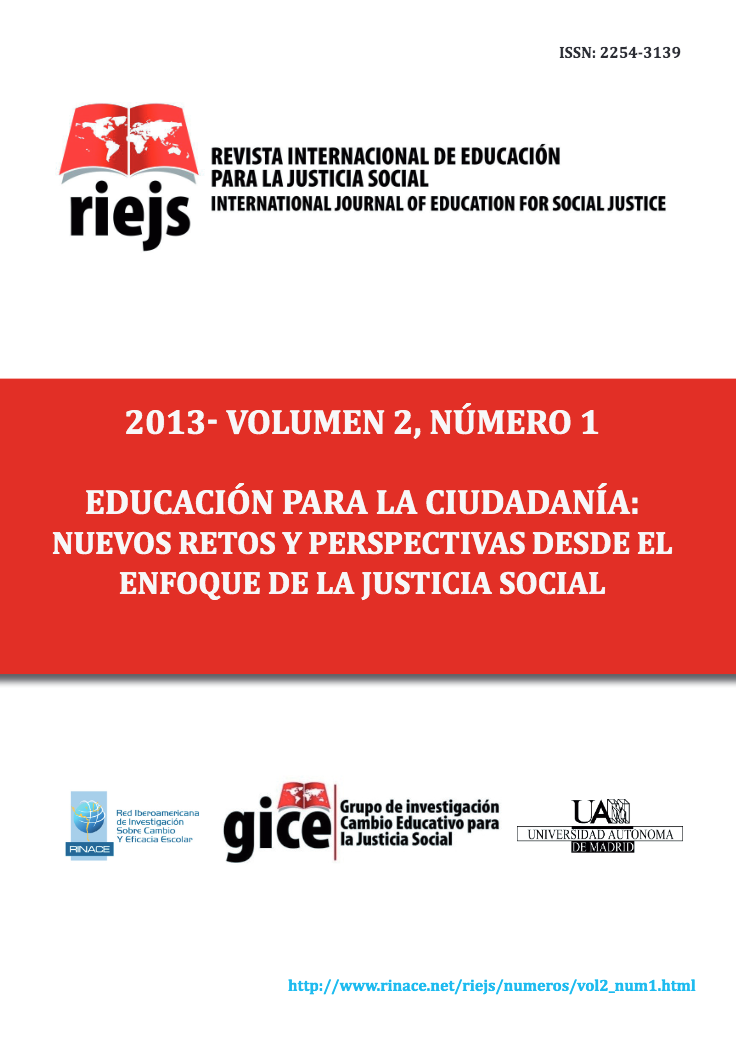Articles
Published
June 17, 2013
Keywords:
Inequality, Solidarity, Human Rights, Achievement, Capacities, Reformism, Re-distribution, Acknowledgement, Social interpretation.
How to Cite
Antón Morón, A. (2013). Equality and Freedom: Basics for Social Justice. Internacional Journal of Education for Social Justice, 2(1). https://doi.org/10.15366/riejs2013.2.1.009
Copyright (c) 2015 Revista Internacional de Educación para la Justicia Social (RIEJS)

This work is licensed under a Creative Commons Attribution-NonCommercial-NoDerivatives 4.0 International License.
Abstract
Equality and freedom are fundamental principles of justice. They are formal values or components that make up the idea of justice. Regarding the concept of social justice we must distinguish its basis (equality, freedom), its dimensions (distribution, acknowledgement, representation) and the different types (solidarity, basic rights, achievement or encouragement). Social reality and the limits of predominant traditions in the foundation of justice make the need to deepen and renewing the basics (equality and freedom) of social justice, to reappraise its dimensions (distribution, acknowledgement and representation or participation) and to re-balance its different types (solidarity, achievement, basic rights or legal equality) more and more imperative. The suggested approach tends towards strengthening equality and freedom, the real capacities of social majorities to define a progressive social model and a fairer society, especially in the education field. It’s framed in a ‘strong’ reformism in this process of management and searching for the way out of socioeconomic crisis full of uncertainty, with specific effects in peripheral European countries, like Spain, who bets for a more equitable and progressive way out.Downloads
Download data is not yet available.
